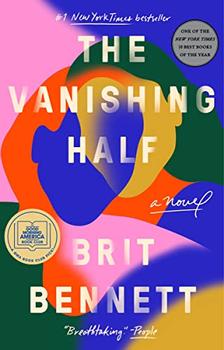Summary | Excerpt | Reading Guide | Reviews | Beyond the Book | Readalikes | Genres & Themes | Author Bio

A Novel
by Brit Bennett
"You think they fixin to stay?" the line cook asked.
"Who knows? She sure seem in a hurry though," Lou said. "Wonder what she hurryin to. Look might past me, didn't wave or nothin."
"Uppity. And what reason she got to be uppity?"
"Lord," Lou said. "I never seen a child that black before."
It was a strange town.
Mallard, named after the ring-necked ducks living in the rice fields and marshes. A town that, like any other, was more idea than place. The idea arrived to Alphonse Decuir in 1848, as he stood in the sugarcane fields he'd inherited from the father who'd once owned him. The father now dead, the now-freed son wished to build something on those acres of land that would last for centuries to come. A town for men like him, who would never be accepted as white but refused to be treated like Negroes. A third place. His mother, rest her soul, had hated his lightness; when he was a boy, she'd shoved him under the sun, begging him to darken. Maybe that's what made him first dream of the town. Lightness, like anything inherited at great cost, was a lonely gift. He'd married a mulatto even lighter than himself. She was pregnant then with their first child, and he imagined his children's children's children, lighter still, like a cup of coffee steadily diluted with cream. A more perfect Negro. Each generation lighter than the one before.
Soon others came. Soon idea and place became inseparable, and Mallard carried throughout the rest of St. Landry Parish. Colored people whispered about it, wondered about it. White people couldn't believe it even existed. When St. Catherine's was built in 1938, the diocese sent over a young priest from Dublin who arrived certain that he was lost. Didn't the bishop tell him that Mallard was a colored town? Well, who were these people walking about? Fair and blonde and redheaded, the darkest ones no swarthier than a Greek? Was this who counted for colored in America, who whites wanted to keep separate? Well, how could they ever tell the difference?
By the time the Vignes twins were born, Alphonse Decuir was dead, long gone. But his great-great-great-granddaughters inherited his legacy, whether they wanted to or not. Even Desiree, who complained before every Founder's Day picnic, who rolled her eyes when the founder was mentioned in school, as if none of that business had anything to do with her. This would stick after the twins disappeared. How Desiree never wanted to be a part of the town that was her birthright. How she felt that you could flick away history like shrugging a hand off your shoulder. You can escape a town, but you cannot escape blood. Somehow, the Vignes twins believed themselves capable of both.
And yet, if Alphonse Decuir could have strolled through the town he'd once imagined, he would have been thrilled by the sight of his great-great-great-granddaughters. Twin girls, creamy skin, hazel eyes, wavy hair. He would have marveled at them. For the child to be a little more perfect than the parents. What could be more wonderful than that?
The Vignes twins vanished on August 14, 1954, right after the Founder's Day dance, which, everyone realized later, had been their plan all along. Stella, the clever one, would have predicted that the town would be distracted. Sun-drunk from the long barbecue in the town square, where Willie Lee, the butcher, smoked racks of ribs and brisket and hot links. Then the speech by Mayor Fontenot, Father Cavanaugh blessing the food, the children already fidgety, picking flecks of crispy chicken skin from plates held by praying parents. A long afternoon of celebration while the band played, the night ending in a dance in the school gymnasium, where the grown folks stumbled home after too many cups of Trinity Thierry's rum punch, the few hours back in that gym pulling them tenderly toward their younger selves.
On any other night, Sal Delafosse might have peeked out his window to see two girls walking under moonlight. Adele Vignes would have heard the floorboards creak. Even Lou LeBon, closing down the diner, might have seen the twins through the foggy glass panes. But on Founder's Day, Lou's Egg House closed early. Sal, feeling suddenly spry, rocked to sleep with his wife. Adele snored through her cups of rum punch, dreaming of dancing with her husband at homecoming. No one saw the twins sneak out, exactly how they'd intended.
Excerpted from The Vanishing Half by Brit Bennett. Copyright © 2020 by Brit Bennett. All rights reserved. No part of this excerpt may be reproduced or reprinted without permission in writing from the publisher.
Your guide toexceptional books
BookBrowse seeks out and recommends the best in contemporary fiction and nonfiction—books that not only engage and entertain but also deepen our understanding of ourselves and the world around us.